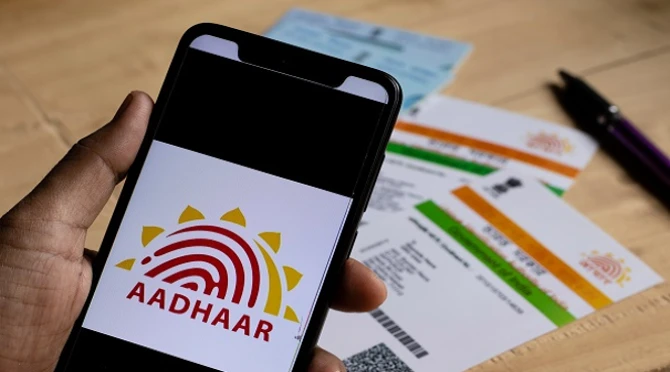
In a significant first, the Central Government has authorized the Union Public Service Commission (UPSC) to utilize Aadhaar-based authentication on a voluntary basis for verifying candidates’ identities during registration and at various stages of examinations and recruitment.
This development follows the recent action by the commission to cancel the provisional candidature of probationary IAS officer Puja Khedkar and bar her from all future examinations for fraudulently exceeding the permissible number of attempts in the civil services examination. Khedkar has also been accused of exploiting disability and Other Backward Classes (OBC) non-creamy layer quotas, among other allegations.
According to a notification from the Personnel Ministry, the UPSC is now permitted to conduct Aadhaar authentication for identity verification of candidates during registration on the ‘One Time Registration’ portal, as well as during different stages of examination and recruitment tests. This authentication may involve Yes/No or e-KYC verification methods. The commission is required to comply with the provisions of the Aadhaar (Targeted Delivery of Financial and Other Subsidies, Benefits and Services) Act, 2016, including all relevant rules, regulations, and directions issued by the Unique Identification Authority of India (UIDAI).
Aadhaar is a 12-digit identification number issued by the UIDAI to all eligible citizens, based on their biometric and demographic information.
In July, the UPSC initiated a series of actions against Khedkar, including filing a forgery case for her alleged manipulation of identity to gain additional attempts at the civil services examination.
The Delhi Police subsequently registered a case and launched an investigation. Khedkar, who had been provisionally allotted to the Indian Administrative Service (2023 batch, Maharashtra cadre), was also accused of misusing her power and privileges during her training in Pune.
Additionally, in June, the UPSC decided to implement facial recognition technology and artificial intelligence-based CCTV surveillance systems to prevent cheating and impersonation in its examinations. Through a tender document, the commission invited bids from experienced public sector undertakings to develop two technological solutions: “Aadhaar-based fingerprint authentication (or digital fingerprint capturing) and facial recognition of candidates, along with QR code scanning of e-admit cards,” and a “Live AI-based CCTV surveillance service” to be deployed during the examination process.
The UPSC conducts 14 major exams annually, including the prestigious civil services examination, which selects officers for the Indian Administrative Service (IAS), Indian Foreign Service (IFS), and Indian Police Service (IPS), among others. In addition, the commission oversees numerous recruitment tests and interviews for Group ‘A’ and Group ‘B’ positions within the central government, with lakhs of candidates participating in these nationwide exams each year.




